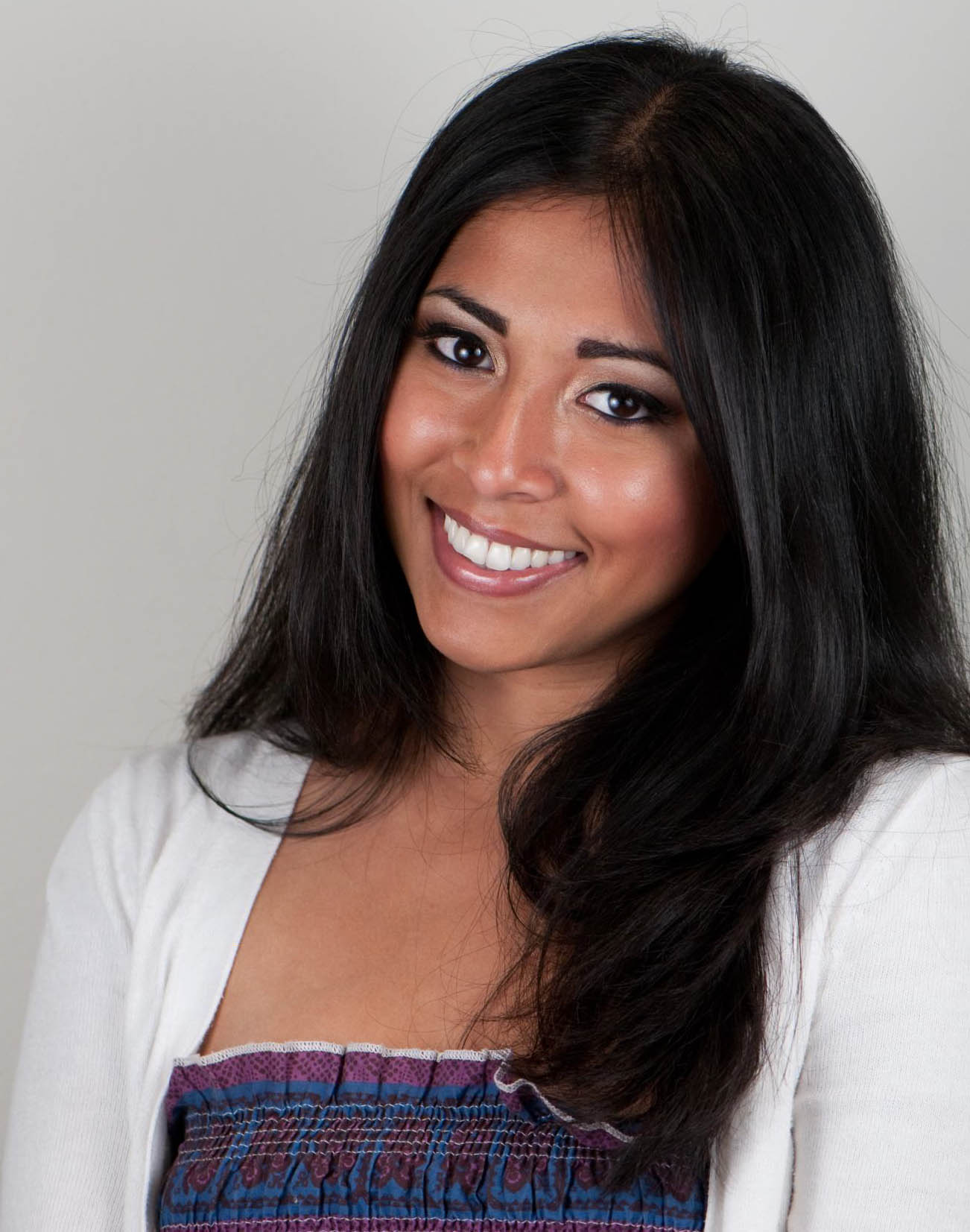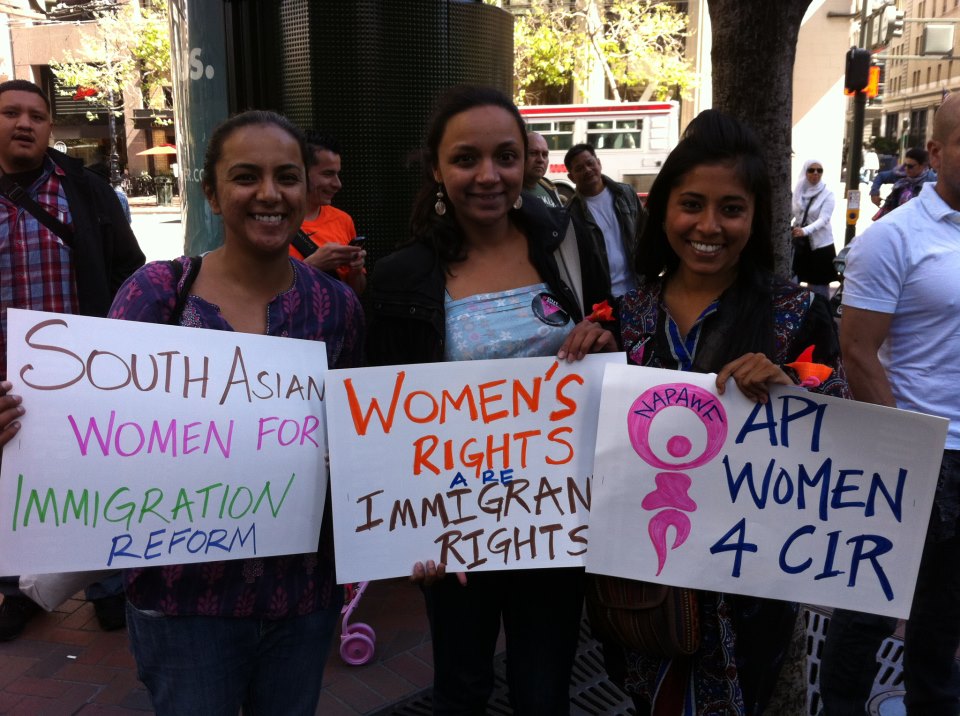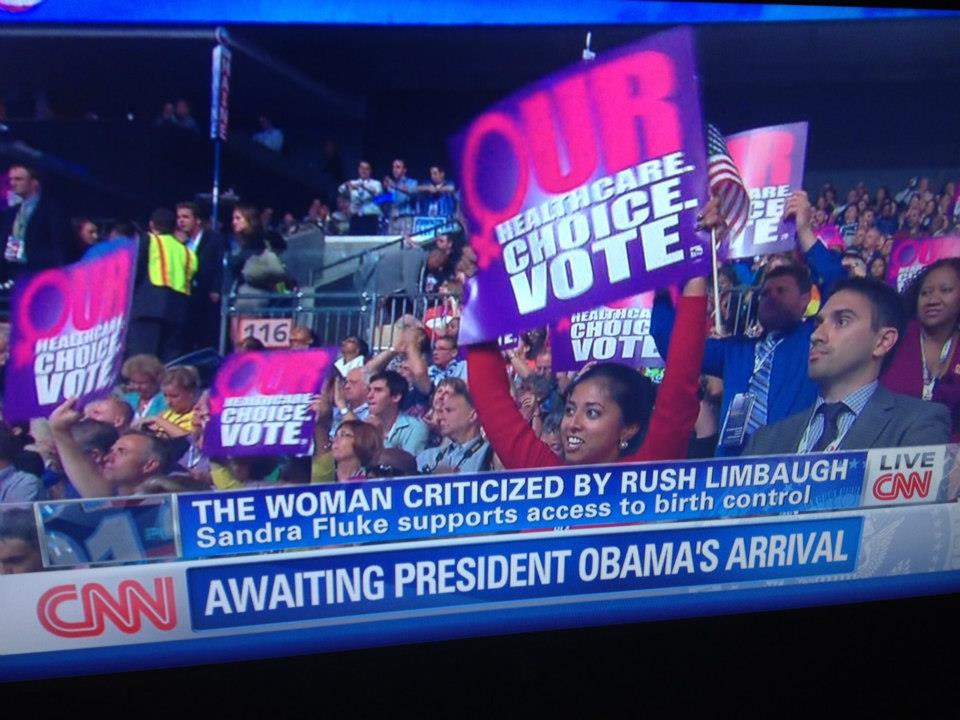
According to the 2010 Census, ‘minorities’ in the United States now represent more than half of the US population under the age of 1. Latinos, African Americans and Asian Americans are on track to become the majority of this country’s population by 2050, they currently make up 37 % of the US population. Yet 95% of the US Senate is white, as is 81% of the House of Representatives. Our country’s demographics are changing, but this won’t mean much unless there is equal representation in government. Otherwise, traditional power structures will continue to leave groups in the margins.
This political reality drives much of my work as an activist. I am a Bangladeshi Muslim American woman. I don’t see people who look like me making the decisions that impact my life. I also don’t see them making the decisions that impact the lives of people around me here in Northern California, one of the most ethnically diverse regions in the country. My experiences have moved me to use traditional structures of politics, from the local, state and national levels to empower our marginalized communities.
I have worked for over five years in the non-profit sector. I have worked for South Asian organizations, Muslim organizations and currently work with marginalized Asian minority and refugee groups in the Bay Area. Yet this is not where my work ends. I am also deeply involved in electoral politics because I know that we are not at this table. Who are ‘we?” We are women, brown people, black people, Asians, people from LGBT communities, immigrants. This is not a white person vs. person of color issue; this is an issue that impacts each and every person in this country. Our country cannot be a dynamic inclusive entity until there is equitable representation throughout all levels and sectors of our decision-making bodies.

Many communities have long been outside of the traditional decision-making structures, and have lived through a history and within a political system that still defines them as the other. They see direct involvement in the government as uncharted territory. Many marginalized communities are made up of immigrants who also fear being involved, because so much of our system is still unknown and inaccessible to them. Laws have forced this separation, from the Chinese Exclusion Act to the still-present Patriot Act. Minority groups have historically fought for their rights and representation on a grassroots level, from the civil rights movement to domestic workers rights to the current work I see on the ground across the country in countless organizations.
Yet it is time to work to push past these fears and uncertainties. I was elected as a delegate to the Democratic National Convention representing my congressional district. I am on the board of two young Democratic organizations. I ran to be an assembly delegate for my state assembly district. I am always learning, attending meetings, affiliating with organizations such as SAALT (South Asian Americans Leading Together) and NAPAWF (National Asian Pacific American Women’s Forum), who do national policy work while also maintaining a grassroots presence.

My engagement in electoral politics is deeply rooted in social justice organizing that seeks to build a more equitable society. We can only be a better America if we use traditional power structures in non-traditional ways. Congress is not out of our hands and leadership is not out of our hands. I am only one example of someone working to make these changes. I see many young people from diverse backgrounds also standing up to become involved and heard. This has to be done, not just for our communities, or for a narrow slice of our respective ethnic groups, but for the good of all communities. Let our diversity define us as a nation. There will be barriers and there is a long-standing history and system in place that will not change easily, but it is our time to build the next chapter of a new America.
S. Nadia Hussain is a Bangladeshi American activist, poet, blogger and photographer with a passion for human rights work and progressive politics.
Her posts @ Hyphen Magazine http://www.hyphenmagazine.com/blog/nadia-hussain





This website really has all of the information and facts I needed about
this subject and didn’t know who to ask.
This is really fascinating, You’re a very skilled blogger.
I have joined your rss feed and look ahead to in quest of more of your excellent post.
Additionally, I’ve shared your site in my social networks